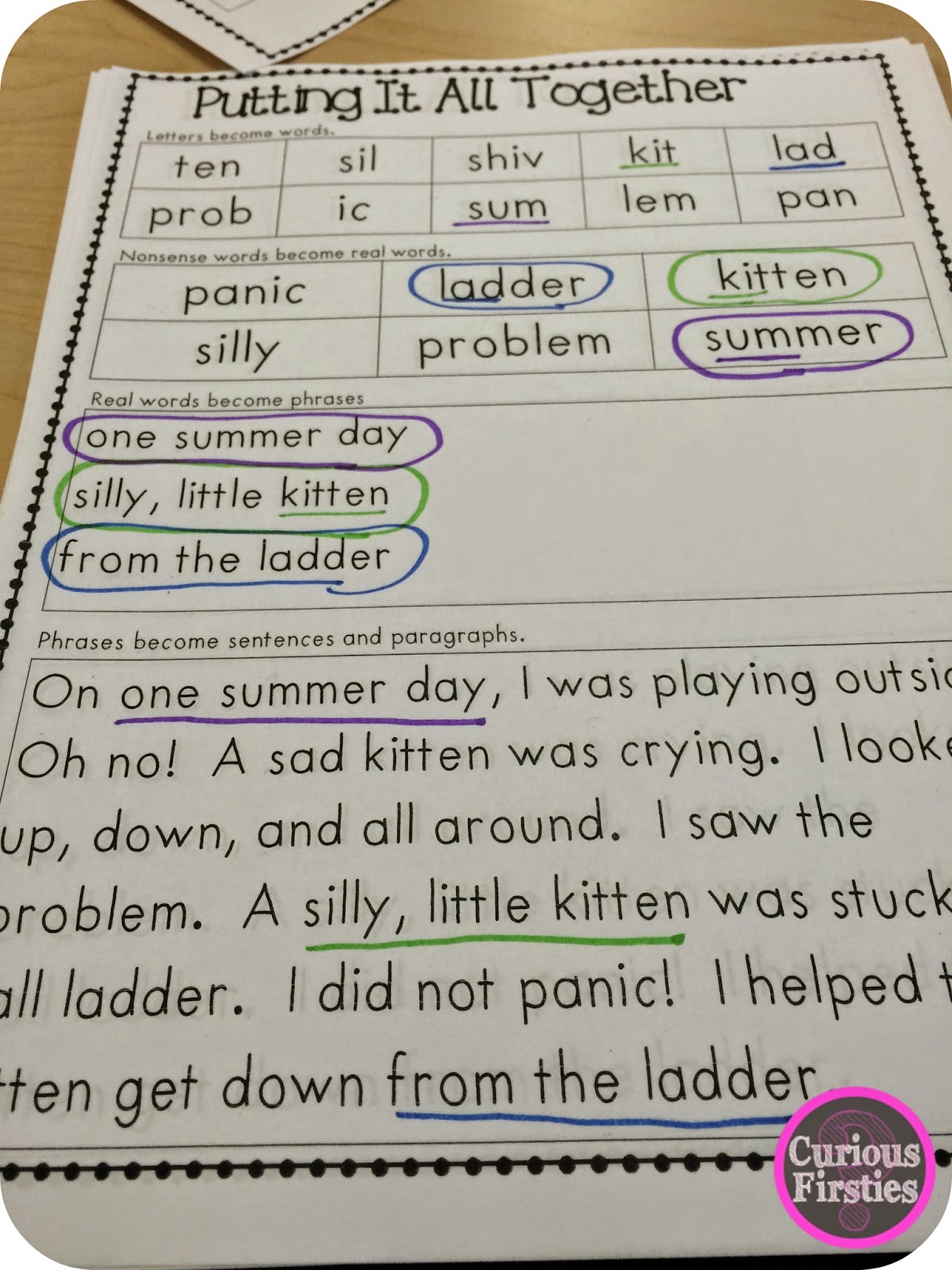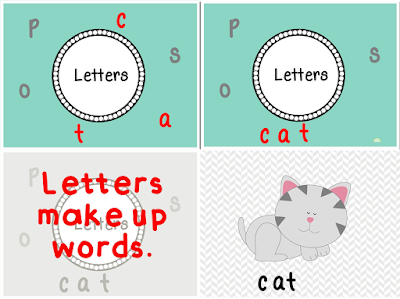One of the most amazing (but also challenging) things about our career as educators is change.
We grow from the yearly changes that we encounter. And the biggest change we confront each year: a new set of students. This new set of little individuals bring their own strengths, expertise, and challenges to the classroom. Because no two years look exactly the same, we must grow and change as educators in order to meet the ever-changing needs of our students.
After leaving the classroom to become a Title I teacher, I feel that I had to adjust quickly to the intervention demands my students required. I was overwhelmed by my desire to help them become readers but felt that my knowledge base needed to grow and expand. I didn't seem to have just the right tools in my toolbox for each kid. And so I had to grow as an educator. I had to learn, try, and analyze my results. What I found out was that I became a much better and must stronger teacher.
Currently as a push-in Title I teacher, I am constantly working with my team to analyze student data, make changes, and produce educational plans. My daily schedule incorporates Tier I guided reading instruction, Tier II intervention on specific skills, guided math instruction, writer's workshop, and more Tier II interventions. We look at the data and change groups when new needs arise.
Through all my research, trial and error, and personal learning, I found out that my expertise lies in breaking down skills for students. Helping them to understand the real life connection, while also making it more concrete. My teaching was not always this way. But through the literacy writing of Tanny McGregor and the math instruction of Donna Boucher, I have found my own path and intervention techniques to help meet the ever-changing needs of my first graders.
As young learners, it can sometimes be hard for students to understand how the foundational skills connect to real world experiences. I truly believe that helping our students make these connections will help them to achieve and grow as learners.
I like to take skills...break them down and then build them back up. For example, decoding small words will help students to read 2-syllable words.
Reading these words will help students when reading sentences or paragraphs. To illustrate this, I created a simple sheet that does just that:
I have found that my students get really excited to see that reading one small part of a word can help them to read an entire paragraph!
In other cases, I have worked with students that have a difficult time determining the difference between a letter, sound, and word. Again, they needed to understand how those pieces come together to form the "big picture." So along with manipulatives (letter tiles and word cards), I use an interactive powerpoint that helps them see how letters come together into words and the words come together to form sentences. Here is an example of some slides:
Whether it is comprehension, fluency, math skills, or phonics, I work hard to find ways to break down each skill for my students that need it.
Trying out these lessons is always the best part! I love to analyze, change, and re-create them for the years to come.
Two
years ago, I was invited to contribute to Adventures in Literacy Land.
I was excited to learn new techniques, push my thinking, and
incorporate ideas from other experts. And what I have found from this
experience is that my students have benefited from the variety of experts that
write, comment, and read this blog. Thank you helping me to guide my students as they grow as learners.












I love breaking down skills for my students as well. Thank you for sharing your great ideas!
ReplyDeleteThank you! You do such a great job at breaking down skills for your third graders.
DeleteMy kiddos loved the "Putting It All Together" activities! Such great ideas :)
ReplyDeleteAmanda
I am so glad that they were able to support your kids, as well! My kids get so excited to see it all come together.
Delete